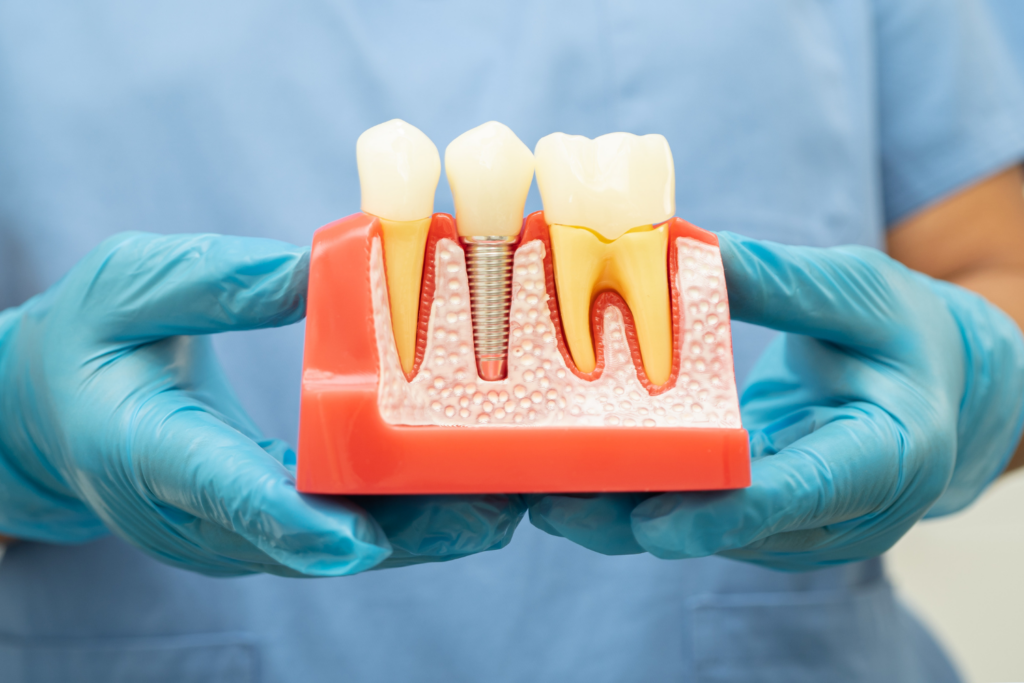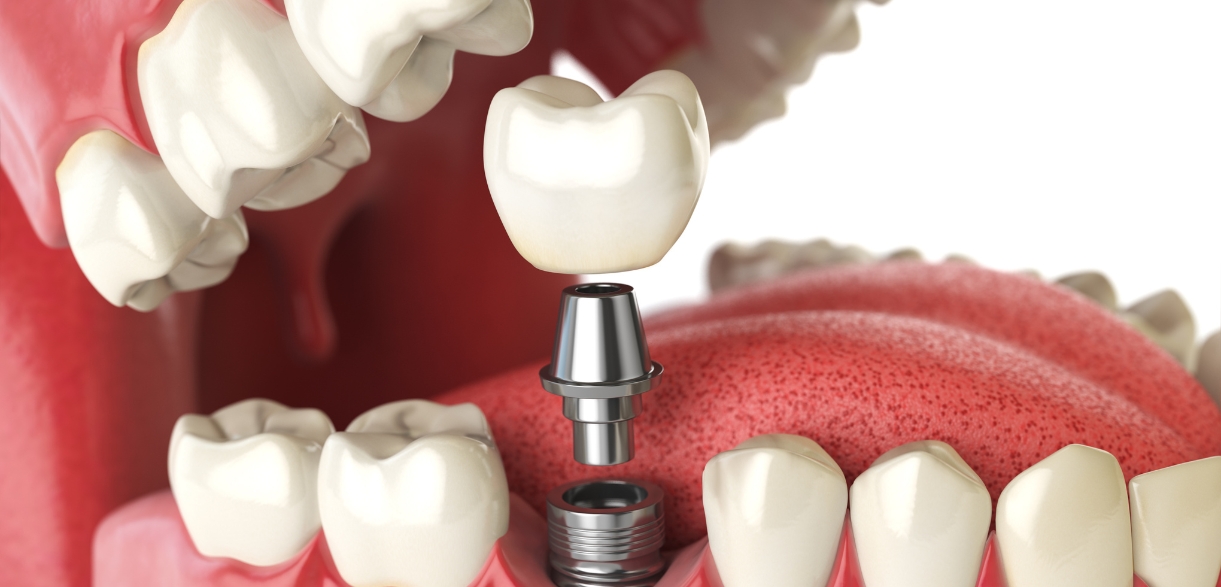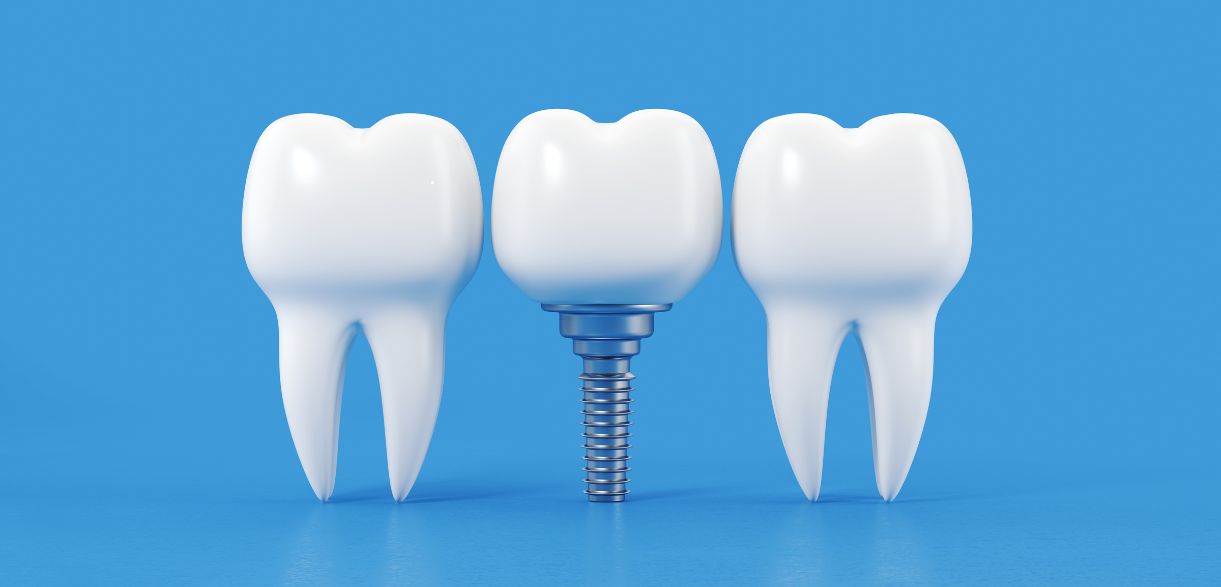New Patients Welcome!

Dental implants have become a popular solution for restoring missing teeth, offering durability and a natural appearance. However, the recovery process after getting a dental implant is crucial to ensure the success of the procedure. One common question that arises is how long one should rest after undergoing dental implant surgery. In this comprehensive guide, we’ll delve into the factors affecting recovery time, optimal rest periods, and essential post-operative care tips to facilitate a smooth healing process.
Understanding Dental Implants
Before discussing the recovery period, it’s essential to understand what a dental implant entails. A dental implant is a surgical fixture that is placed into the jawbone to support a replacement tooth or bridge. It consists of a titanium post that integrates with the jawbone, providing a sturdy foundation for a prosthetic tooth.

Factors Affecting Recovery Time
Several factors influence how long it takes to recover after receiving a dental implant:
- Surgical Complexity: The complexity of the implant surgery can impact recovery time. For straightforward cases, the healing process may be quicker compared to more complex procedures involving bone grafting or multiple implants.
- Patient’s Overall Health: General health plays a significant role in recovery. Individuals with good oral hygiene practices and overall health tend to recover faster than those with underlying health issues or compromised immune systems.
- Bone Density and Quality: The density and quality of the jawbone where the implant is placed affect healing. Adequate bone density is essential for successful implant integration.
- Pre-existing Conditions: Certain medical conditions, such as diabetes or autoimmune disorders, can potentially prolong recovery times and affect healing.
- Post-operative Care: Adhering to post-operative care instructions provided by your dentist or oral surgeon is crucial for minimizing complications and promoting healing.
Immediate Post-Operative Period
Immediately after getting a dental implant, it’s normal to experience some discomfort, swelling, and minor bleeding. Your dentist or oral surgeon will provide instructions on managing these symptoms, which may include:
- Pain Management: Prescribed pain medication or over-the-counter pain relievers can help manage discomfort.
- Swelling Reduction: Applying ice packs to the affected area can reduce swelling.
- Bleeding Control: Gently biting on gauze can help control bleeding.
- Dietary Restrictions: Soft foods and liquids may be recommended initially to avoid placing pressure on the implant site.
Rest Period After Dental Implant Surgery
The rest period following dental implant surgery is crucial for allowing your body to heal and the implant to integrate with the jawbone. Here’s a general timeline for resting and recovery:
The first 24 to 48 Hours
During the first day or two after surgery, it’s essential to rest as much as possible. Avoid strenuous activities, exercise, and heavy lifting. Resting helps reduce the risk of complications such as excessive bleeding or dislodging the blood clot forming over the surgical site.
2 to 7 Days
In the following days, gradually increase your activity level as tolerated, but continue to avoid activities that could strain the surgical site. Stick to a soft diet and maintain good oral hygiene practices as recommended by your dentist.
1 to 2 Weeks
Most patients can resume normal daily activities within one to two weeks after surgery, depending on how well the healing progresses. However, avoid activities that involve putting stress on the jaw or mouth, such as chewing hard foods or participating in contact sports.
Signs of Complications
While some discomfort and swelling are normal after dental implant surgery, certain symptoms may indicate complications:
- Persistent Pain: Pain that worsens or persists beyond what is manageable with prescribed medication.
- Excessive Bleeding: Bleeding that doesn’t subside with gentle pressure or continues for more than a few hours.
- Signs of Infection: Fever, increased swelling, redness, or pus around the implant site.
- Implant Mobility: If you notice the implant feels loose or moves, contact your dentist immediately.
Long-Term Care and Maintenance
After the initial recovery period, maintaining good oral hygiene and attending follow-up appointments with your dentist are essential for the long-term success of your dental implant. Brush and floss regularly and schedule professional cleanings to keep your gums and remaining teeth healthy.
The amount of rest required after getting a dental implant depends on various factors, including the complexity of the surgery and your overall health. Following your dentist’s post-operative instructions diligently and allowing adequate time for recovery are crucial steps toward ensuring the success of your dental implant procedure. By taking proper care during the initial healing phase and beyond, you can enjoy the benefits of a restored smile and improved oral health for years to come.
Remember, if you have any concerns or questions about your recovery after dental implant surgery, don’t hesitate to contact your dental care provider for guidance.





